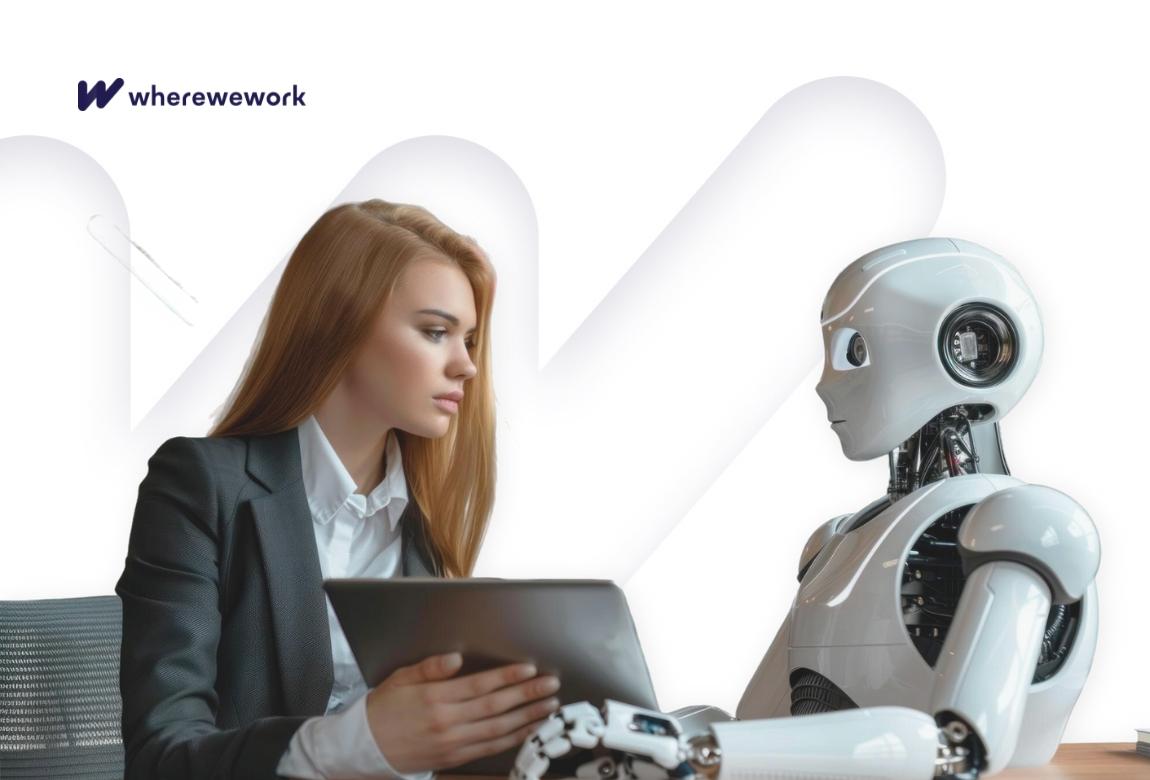Share
How Artificial Intelligence Is Transforming the Recruitment and Hiring Process

In today’s fast-paced digital era, Artificial Intelligence (AI) has become an indispensable ally in human resource management—particularly in recruitment and hiring. Hungarian companies face major challenges: vast numbers of CVs, limited time for evaluation, and the constant need to attract qualified talent in an increasingly competitive environment. According to the 2025 Demand Sage report, 87% of companies worldwide already use AI-based recruitment tools, while in Hungary—especially in IT, automotive, manufacturing, and renewable energy sectors—automated hiring is expanding rapidly.
This article, based on research tailored to the Hungarian market, explores how AI optimizes key recruitment stages—from sourcing to onboarding—supported by recent data and statistics. It also examines AI’s impact on digital employer branding, data-driven compensation, and Learning & Development (L&D), offering a balanced perspective on both opportunities and challenges in the Hungarian context.
Automated Hiring and Efficiency: From Screening to Faster Decisions
Traditional recruitment requires countless hours of CV screening and preliminary interviews—often with delays and human errors. AI changes that with algorithms capable of analyzing thousands of profiles in seconds, identifying suitable candidates based on skills, experience, and cultural fit. In Hungary, where the average time to hire an AI engineer is 36 days (Profession.hu 2025), AI-driven sourcing and screening dramatically reduce HR workload—especially in Budapest, where 89% of tech positions are concentrated.
According to LinkedIn (2024), 62% of recruitment professionals are optimistic about AI’s impact, though only 27% are currently experimenting with generative AI. Demand Sage reports that more than 65% of recruiters in the region use AI to save time (44%), improve sourcing (58%), and cut hiring costs by up to 30% per candidate. For instance, AI chatbots handle initial interactions, answer company-related questions, and schedule interviews, increasing candidate response rates by 30% (Deloitte).
AI also reduces the average time to hire by 50% (Gartner 2024), enabling companies to fill positions faster—a key advantage in a market where 71% of employers report AI and data skills shortages (MKIK 2025). This efficiency not only accelerates processes but also enhances the candidate experience, turning recruitment from an administrative burden into a personalized and engaging interaction.
Strengthening Digital Employer Branding: Attracting Talent with Smart Technology
Digital employer branding—how a company positions itself as an employer of choice—has a major influence on career decisions. AI plays a key role by analyzing data from social media, employee feedback, and market trends to optimize communication strategies. In Hungary, where 76% of candidates research company culture before applying (Profession.hu 2025), AI-driven branding has significantly increased the appeal of companies such as MOL, Bosch, EPAM, and Graphisoft.
According to the Universum Employer Branding NOW 2025 report, 70% of employers use AI in recruitment and digital branding, enabling hyper-personalized campaigns and real-time EVP (Employee Value Proposition) testing. A study published in the International Journal of Business and Management (2022) found a positive correlation between AI use and improved employer brand perception—candidates view AI-powered companies as more innovative and attractive, especially in a market where 83% of Gen Z prefers employers with a strong digital presence.
For example, AI-generated personalized job ads increase qualified applications by 50% (LinkedIn 2024). This approach not only boosts visibility but also reduces human bias, promoting diversity and inclusion—68% of recruiters believe AI helps eliminate unconscious bias (Tidio 2024). Thus, digital employer branding becomes a data-driven strategic tool that attracts passive talent and strengthens a company’s reputation in the Hungarian job market.
Optimizing Data-Driven Compensation: Transparent and Fair Decisions
A crucial stage in the hiring process is defining compensation packages—AI ensures both transparency and fairness. Algorithms analyze market data, past performance, and internal benchmarks to generate competitive offers. In Hungary, where the average gross salary reached HUF 658,400 in March 2025 (KSH) and AI professionals earn between HUF 18–28 million annually (Hays 2025), AI helps address regional pay gaps and IT-sector premiums.
According to Forbes (2025), AI refines offers beyond base salary, enabling equitable outcomes through benefits such as extra vacation days or stock options. Research by Resume Builder (2025) shows that 69% of employers plan to use AI to assess qualifications—including data-driven pay transparency—reducing costs by 30–40%. For senior AI roles, the median net salary can reach HUF 2.8 million per month, with bonuses ranging from 15–25%.
AI also supports pay equity by analyzing historical discrimination patterns. A McKinsey (2024) study reports a 25% increase in retention when companies implement AI-based compensation systems. While 66% of employees globally avoid AI-driven hiring decisions (Demand Sage 2025), transparency helps build trust—especially in Hungary, where 81% of workers consider pay fairness a top priority (Randstad 2025).
Transforming L&D and Onboarding: Personalized Growth for Retention
After hiring, AI continues to shape the employee experience through L&D, offering adaptive learning programs and faster onboarding. It analyzes learning styles to tailor development paths, boosting engagement and productivity. In Hungary, where 67% of companies invest in AI upskilling (Hungarian Chamber of Commerce and Industry, 2025), platforms such as Green Fox Academy, Codecool, and corporate L&D programs at OTP and MVM already integrate AI.
According to McKinsey (2025), AI-based training increases productivity by 45%. AI chatbots guide new hires through onboarding, reducing integration time by 42% (Accenture 2024). IBM uses AI to personalize course recommendations, improving learning outcomes and retention—a key factor in a market with a 19% annual IT turnover rate.
AI simulations also enable safe practice of daily tasks, reducing errors in sectors such as healthcare and manufacturing (Litslink 2025). Furthermore, 76% of employees accept AI-assisted onboarding (Whatfix 2025), showcasing L&D’s potential to become more accessible and effective across Hungary.
Challenges and Future Outlook
Despite its benefits, AI presents risks: 40% of recruiters identify bias as the main issue, and 37% are concerned about privacy (AI in Hiring Survey 2024). In Hungary, the lack of AI-specific HR regulations (beyond GDPR) requires human oversight. The global AI in HR market is projected to reach USD 6.99 billion in 2025 (MSH), and Hungary aims to position itself as an AI innovation hub through initiatives like the Budapest AI Summit and Startup Campus.
Conclusion
Artificial Intelligence is radically transforming recruitment and hiring—from automated screening and personalized L&D to data-driven compensation and enhanced employer branding. With global savings estimated at USD 1.2 trillion by 2025 (Hirebee), AI is not a trend but a strategic necessity. Companies that adopt it will attract top talent, cut costs, and improve retention. The future of work is intelligent, fair, and human-centered—and AI is the key.
Share
What I read is worth it:
Article written by:
Comments
0 comments

Access your account and add your comment
Create candidate profile
Subscribe to the Newsletter
Read articles of interest from wherewework.hu contributors


